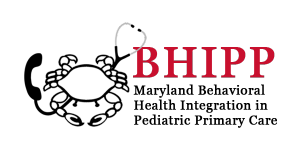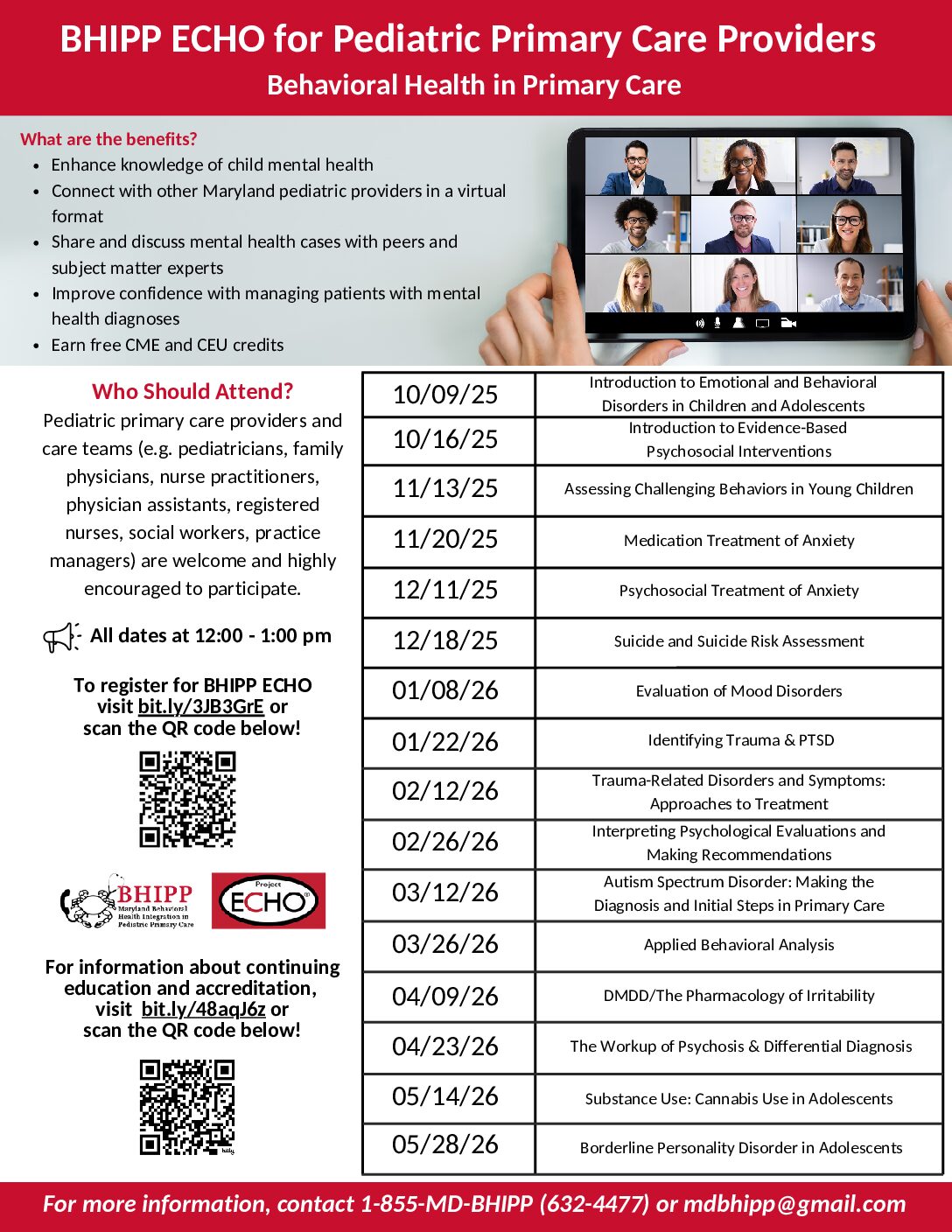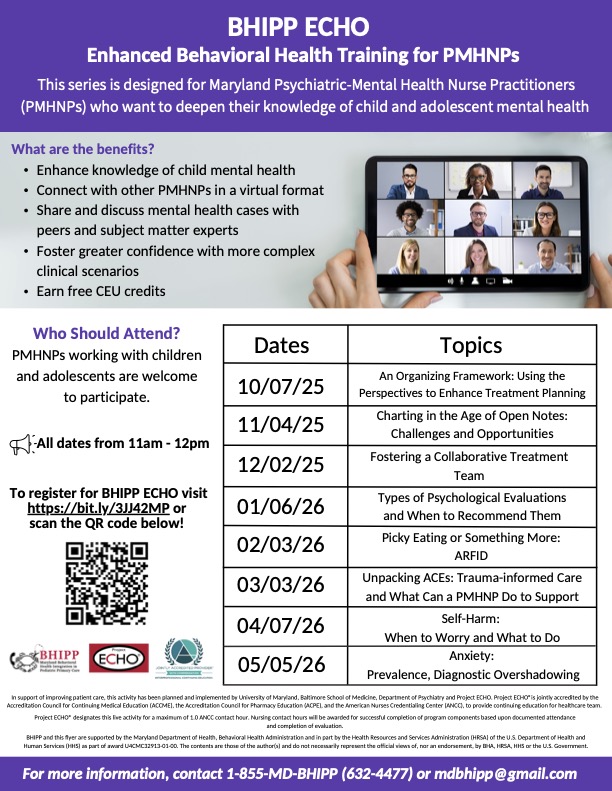About BHIPP ECHO™
BHIPP ECHO is a web-based learning collaborative that is built on the “hub and spokes” design known as the Extension for Community Healthcare Outcomes (ECHO) model.
BHIPP ECHO sessions connect BHIPP consultants with community pediatric providers to provide didactic presentations and case-based learning through real-time online learning sessions. Participants join ECHO sessions from their own desktop or mobile devices using free videoconferencing software. The goal of BHIPP ECHO sessions is to improve providers’ knowledge of mental health screening, evaluation, and in-office interventions, with an emphasis on both non-pharmacological and pharmacological treatments.
BHIPP ECHO sessions for Pediatric Primary Care Providers are held bi-monthly and BHIPP ECHO sessions for PMHNPs sessions are held monthly. All BHIPP ECHO sessions include:
Case-based learning in which participating providers present de-identified cases (submitted in advance) for discussion with peers and a multi-disciplinary team of behavioral health experts.
A 15-20 minute didactic lecture on a specific behavioral health topic.
BHIPP is currently offering 2 ECHO tracks:
BHIPP ECHO for Pediatric Primary Care Providers (PCPs)
BHIPP ECHO for Psychiatric-Mental Health Nurse Practitioners (PMHNPs)
Continuing Education Credit Information:
BHIPP ECHO for Pediatric Primary Care Providers: CEU, CME, and ABP MOC Part 2 credits are offered at no cost to participating providers. Those interested in earning ABP MOC Part 2 credits through their participation must complete the post-test questions with a passing score of 75% within 3 attempts. For more information on continuing education and accreditation, view the series syllabus here.
BHIPP ECHO for PMHNPs: CEU and CME credits are offered at no cost to participating providers.


